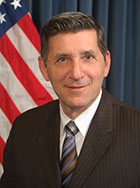 |
Michael Botticelli, Director of National Drug Control Policy
Michael Botticelli was sworn in as Director of National Drug Control Policy on February 11, 2015. Previously, he served both as Acting Director and Deputy Director of National Drug Control Policy. He joined the Office of National Drug Control Policy (ONDCP) as Deputy Director in November 2012.
Mr. Botticelli has more than two decades of experience supporting Americans who have been affected by substance use disorders. Prior to joining ONDCP, Mr. Botticelli served as Director of the Bureau of Substance Abuse Services at the Massachusetts Department of Public Health, where he successfully expanded innovative and nationally recognized prevention, intervention, treatment, and recovery services for the Commonwealth of Massachusetts. He also forged strong partnerships with local, state, and Federal law enforcement agencies; state and local health and human service agencies; and stakeholder groups to guide and implement evidence-based programs. These programs include the establishment of a treatment system for adolescents, early intervention and treatment programs in primary healthcare settings, jail diversion programs, re-entry services for those leaving state and county correctional facilities, and overdose prevention programs.
Mr. Botticelli has served in a variety of leadership roles for the National Association of State Alcohol and Drug Abuse Directors. He was also a member of the Advisory Committee for the Substance Abuse and Mental Health Services Administration’s Center for Substance Abuse Prevention and the National Action Alliance for Suicide Prevention. He has also co-authored many peer-reviewed articles that have significantly contributed to the substance abuse field.
In 2008, Mr. Botticelli was the first recipient of the annual Ramstad/Kennedy National Award for Outstanding Leadership in Promoting Addiction Recovery. In 2012, he was awarded the Service Award from the National Association of State Alcohol and Drug Abuse Directors.
Born in Upstate New York, Mr. Botticelli holds a Bachelor of Arts degree from Siena College and a Master of Education degree from St. Lawrence University. He is also in long-term recovery from a substance use disorder, celebrating more than 25 years of sobriety.
|
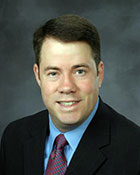 |
Tom Coderre, Advisor to the Administrator, Substance Abuse and Mental Health Services Administration
Well known in the
addiction recovery community, Tom Coderre was Chief of Staff to the Rhode
Island Senate President prior to joining SAMHSA as a Senior Advisor to the
Administrator at the end of August 2014. He served as the Board Chair for Rhode
Island Communities for Addiction Recovery Efforts (RICARES), and he is the
former National Field Director of Faces & Voices of Recovery. Mr. Coderre
has an extensive background in government and served in the Rhode Island Senate
from 1995-03. He is a graduate of Rhode Island College where he earned his
bachelor’s degree in political science. Mr. Coderre works on a variety of
issues for SAMHSA and the Administrator, including but not limited to
prevention, treatment and recovery programs and policy. He is coordinating
collaboration on these issues and representing SAMHSA with other HHS offices
and operating divisions, and with the White House.
|
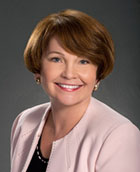 |
Carol McDaid, Principal and Cofounder, Capitol
Decisions, Inc.
Carol McDaid is a co-founder and Principal of Capitol Decisions Inc. With nearly 25 years of Federal legislative experience in Washington, Ms. McDaid provides her clients with legislative and public affairs consulting on issues that span the breadth of health care, including Medicare, Medicaid, private sector reimbursement issues, and comparative effectiveness research.
A special focus of Capitol Decisions is national alcohol and drug treatment policy. For over 15 years, Ms. McDaid has worked with leading non-profit drug and alcohol treatment centers, addiction physicians, and other prevention and consumer organizations to refine public policy addressing alcohol and other drug addictions.
Ms. McDaid led the Parity NOW Coalition behind passage of the 2008 “Paul Wellstone and Pete Domenici Mental Health Parity and Addiction Equity Act.” This landmark legislation requires insurers to treat addiction, mental, and physical health problems equally.
The Parity NOW Coalition became the model for successfully advocating for inclusion of addiction and mental health benefits in health-care reform legislation. Over 300 addiction and mental health provider and consumer organizations, plus criminal justice, child welfare, and other groups, make up the coalition.
Because Ms. McDaid personally overcame addiction, she understands the challenges, political and personal, of dealing with alcohol and drug issues. She serves as Chair of the Board of Directors for Faces and Voices of Recovery. She also serves on the Betty Ford Institute Executive Council, and in 2007, she received the Johnson Institute’s America Honors Recovery Award.
Before coming to CDI, Ms. McDaid worked for seven years as Senior Vice President at R. Duffy Wall & Associates, a Washington, D.C.-based government relations consulting firm. There she managed the health-care practice and represented hospitals, providers, insurers, pharmaceutical manufacturers, and cancer research interests. She has also been a senior Washington representative at the Blue Cross and Blue Shield Association and a manager in the Employee Benefit Services Group of PriceWaterhouseCoopers Washington National Tax Service.
A North Carolina native, Carol McDaid graduated from Emory University in Atlanta, Ga., where she majored in Political Science. The focus of her graduate work was in legislative affairs at George Washington University in Washington, D.C.
|
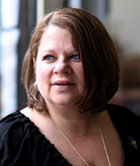 |
Holly Cekala, Executive Director, RICares
Holly Cekala is currently the executive director of
RICares, Rhode Island’s only recovery community organization, whose mission is
to advocate for those in recovery and their families. She found this job to be
a natural transition after managing the Anchor Recovery Community Centers in
Rhode Island.
Over the past 4 years, Ms. Cekala has helped design,
implement, and operationalize many successful peer programs, such as the Anchor
Recovery DryDock Center, the women’s facility in Rhode Island’s Anchor Correctional
Institute, and the AnchorED Program, which sends peers in to help people who
just overdosed on opiates. She is a certified trainer of the Recovery Coach
Academy, where she trained hundreds of peers to become Certified Peer
Specialists with placement in hospitals, prisons, faith-based centers, senior
centers, and recovery housing.
Ms. Cekala serves on the Rhode Island Brass TACS Policy
Coalition, the Rhode Island Elderly and Addiction Recovery Task Force, the Governor’s
Council of Overdose Prevention, the Governor’s Council for the Reinvention of
Medicaid, the Advisory Board for the Center for Prisoner Health and Human
Rights at Brown University, and the Board of the Center for Addiction and Behavioral
Health Studies at Rhode Island College. She has been a member of the Flamand Family
Association since 1989.
Ms. Cekala is a fierce advocate for people in recovery. She
organized countless public forums and rallies to educate the public regarding
recovery and addiction. She has been featured in Rhode Island Monthly’s “The Top Docs” issue, The Providence Journal, and The
Boston Globe. Being a voice for recovery is what she does best.
Ms. Cekala is a person in long-term
recovery who has overcome many challenges with her own health, including
incarceration, hospitalization, and a serious accident which almost took her
ability to walk. She has a determined attitude and continues to heal.
|
 |
Kristen K. Harper, Executive Director, Association of Recovery Schools
Kristen Harper, MEd, LCDC, is the Executive Director of the Association of Recovery Schools (ARS). Before joining ARS in December of last year, she was the Collegiate Recovery Community Replication Coordinator for the Texas Tech University's Center for the Study of Addiction and Recovery from 2011 to 2013, where she also had the opportunity to pilot a recovery student study abroad program to Ghana. Ms. Harper also founded the Center for Addiction Recovery at Georgia Southern University in 2008. As a person living in long-term recovery, she has dedicated her life to helping others access recovery support services, locally, nationally, and internationally. Recovery school creation, implementation, and evaluation have become a specialty for Ms. Harper. She is currently pursuing a PhD in higher education administration at Texas Tech University in hopes of bridging the existing gaps found in administrative understanding of recovery support services.
|
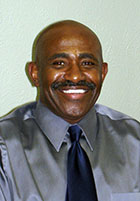 |
Joe Powell, Executive Director, Association of Persons Affected by Addiction
Joe Powell, LCDC, CAS, is in long-term recovery, having been free of alcohol and other drugs for 25 years. Mr. Powell is a licensed chemical dependency counselor who has provided services to individuals and family members with addictions and co-occurring mental health problems for 24 years in Dallas, Texas. He is President and CEO of the Association of Persons Affected by Addiction (APAA), an organization for people seeking or in recovery, their family members, and the community. In 1998, APAA became one of the first federally funded peer-to-peer recovery community support programs through the Substance Abuse and Mental Health Services Administration (SAMHSA) Center for Substance Abuse Treatment (CSAT). In 2007, APAA signed one of the first addiction recovery community organization contracts with the ValueOptions® managed care company for peer recovery support services. APAA is the only Texas peer recovery community organization accredited with the National Council on Accreditation of Peer Recovery Support Services.
|
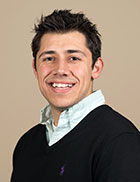 |
Justin Luke Riley, President and CEO, Young People in Recovery
Justin Luke Riley is 27 years old, and has been in long term recovery for seven years. He is Young People in Recovery’s (YPR) President and CEO, and a founding member. Justin also does organizational development consulting and was a Youth and Community Engagement Pastor as well as a private Life Coach. He graduated cum laude from the University Colorado at Denver in the University’s Honors and Leadership Program in 2013, receiving a BA in communication, mediation, and public relations. As a natural leader and gifted public speaker, Justin has been featured in USA TODAY and MTV – ACT for his involvement in youth leadership and community engagement. Justin is a prolific leader in recovery, served on the Executive Board as Secretary for Faces & Voices of Recovery. He is the President of the Board of Directors for Advocates for Recovery, and also serves in many other service-oriented capacities. He also has extensive personal and professional experience in the mental health recovery space.
|
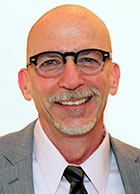 |
Tom Hill, Altarum Institute Fellow
Tom Hill, M.S.W., currently serves as Project Director for the Targeted Capacity Expansion Peer to Peer and the Recovery Community Service Programs (RCSP) Technical Assistance (TA) initiatives within Altarum Institute. He brings a dedicated commitment to the goal of long-term recovery for individuals, families, and communities through advocacy and peer services grounded in the organized recovery community. Mr. Hill has been involved in the RCSP since its beginning in 1998, initially as a Grantee Project Director and later as a member of the TA Team at Altarum. He has also served as the Project Director of Access to Recovery II.
Mr. Hill recently returned to Altarum after serving for 3 years as Director of Programs at Faces & Voices of Recovery, where he spearheaded efforts in statewide organizing, capacity building of recovery community organizations, accreditation of peer programs, and the development of peer practice standards. As a writer and designer, he has contributed to and authored a variety of documents, products, and learning tools and program design, development, and implementation.
Mr. Hill has served on numerous boards, committees, and workgroups, including ones at the Substance Abuse and Mental Health Services Administration (SAMHSA). His most recent service has been on the Collaborative Leadership Team on SAMSHA’s Bridging Recovery Supports to Scale Technical Assistance Center Strategy initiative.
Mr. Hill is frequently sought out as a national thought leader in the recovery field and his personal experience of recovery spans over two decades. A seasoned community organizer, he has worked both professionally and as a grassroots leader in areas such as recovery and addiction; recovery-oriented systems of care (ROSC); HIV/AIDS; lesbian, gay, bisexual, and transgendered (LGBT) health; and reproductive rights. In addition, he has extensive experience as a trainer, educator, and/or facilitator in cultural competency; LGBT health; addiction and recovery; ROSC; mental health; community organizing; strength-based community assessments; and organizational, program, and leadership development.
|
|




